Origins of Moral-political Philosophy in Early China

The origins of moral-political philosophy in Early China can be traced back to the era of the Five Classics, which were the foundational works of Confucianism. These texts discussed the nature of virtue and the importance of social and political harmony. Later, during the Warring States period (403–221 BCE), a number of philosophical schools emerged, such as Mohism and Daoism, which developed their own distinct moral-political philosophies.
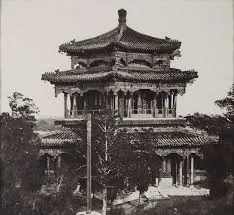
These philosophies were based on various different principles, such as the pursuit of self-interest, the unity of all beings, and the need to maintain balance in the universe. Ultimately, the philosophies provided the basis for the development of various Chinese governmental systems and influenced the way in which Chinese society was governed.
Examining the Ancient Chinese Principles of Righteousness and Justice
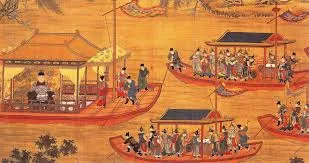
The ancient Chinese principles of righteousness and justice are two of the most important core values in Chinese philosophy. These two principles have been held in high regard by the Chinese people for centuries, and they are still highly respected today.
Righteousness is a concept that is often seen as the foundation of morality in Chinese society. It is based on the idea that individuals must act in a morally upright manner and do what is right and just. This includes respecting the law, honoring one’s family and ancestors, and behaving in an ethical manner. Righteousness is also closely tied to the concept of loyalty, which is seen as a fundamental virtue in Chinese culture.
Justice is another important concept in Chinese philosophy. It is based on the belief that all people should be treated equally and fairly, regardless of their social status. This includes ensuring that all individuals receive equal rights and opportunities, and that the law is applied fairly and without discrimination. It is also important to note that justice is not just about punishing wrongdoers; it is also about ensuring that everyone has access to justice and that the law is enforced without bias.
The principles of righteousness and justice have been deeply embedded in Chinese culture for centuries. They have helped to shape the values of Chinese society and have been seen as essential elements of ethical living. These principles are still highly respected today, and they serve as a reminder of the importance of upholding the law and behaving in an ethical manner.
The Impact of Confucianism and Daoism on Early Chinese Political Thought
Confucianism and Daoism have had a profound influence on early Chinese political thought. Confucianism, a social and political philosophy developed by the Chinese philosopher Confucius during the 6th century BC, focused on the idea of respect and harmony in relationships. This was reflected in Confucianism’s emphasis on the concept of “ren”, or “humaneness”, which sought to promote a sense of morality, virtue, and social order.
The philosophy also stressed the importance of the ruler-subject relationship, emphasizing that the ruler should be benevolent and just, while the subject should be loyal and obedient. Confucianism taught that a well-ordered society was based on the five relationships between ruler and subject, father and son, husband and wife, older brother and younger brother, and friend and friend.
Daoism, also known as Taoism, is an ancient Chinese philosophical system that was developed by the legendary sage Laozi during the 6th century BC. It is based on the idea of “wu wei”, or “non-action”, which emphasizes the importance of taking a natural and passive approach to life and politics. It also teaches that the universe is composed of two forces, yin and yang, which must be kept in balance in order for a society to be harmonious and successful. Daoism also places a strong emphasis on self-cultivation and the importance of living in harmony with nature.
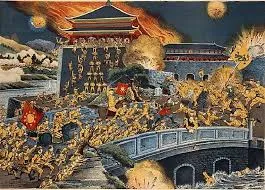
Confucianism and Daoism impacted early Chinese political thought, as seen in the writings of the Legalists. They adopted many of the values and principles of these two philosophies into their own theories of government. The legalists believed in the importance of having a strong government ruled by a powerful ruler.
They also believed that the ruler should be benevolent and just, while the subjects should be loyal and obedient. Furthermore, they advocated for the use of rewards and punishments to ensure compliance with the law. These beliefs drew heavily on Confucianism and Daoism. Their influence can be seen in the writings of the legalists.
The impact of Confucianism and Daoism on early Chinese political thought was profound. The two philosophies provided a framework for understanding the importance of social order, morality, virtue, and harmony in a well-ordered society. Furthermore, they influenced the writings of the legalists, who adopted many of their values in their own theories of government. As such, Confucianism and Daoism remain a strong influence on Chinese political thought to this day.
Exploring the Ideological Foundations of Early Chinese Moral-Political Philosophy
Early Chinese moral-political philosophy is an area of study that has been of great interest to scholars. It is a unique blend of moral, political, and metaphysical thought. Provides insight into the values, beliefs, and ideals of the Chinese people. This philosophy is deeply rooted in the teachings of Confucius. It has been expanded on by thinkers such as Mencius, Xunzi, and Han Fei. These philosophers sought to articulate a coherent ethical system that could be applied to the government and society of their day.
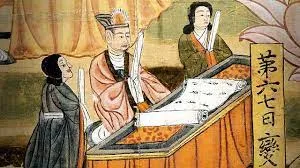
The ideological foundations of early Chinese moral-political philosophy are based on the notions of humaneness (ren), ritual propriety (li), and the Way (dao). Humaneness (ren) is the primary moral ideal in Confucian thought. It is a sense of compassion and benevolence exhibited by each individual in their interactions with others.
Ritual propriety (li) is the practice of behaving according to established customs and traditions. Seen as being necessary for the maintenance of social order. Lastly, the Way (dao) is an abstract concept that encompasses the totality of the universe. This notion of a cosmic unity serves as a guideline for how individuals and society should act.
These three notions form the core of early Chinese moral-political philosophy. They are seen as essential for the realization of a harmonious society. Confucianism emphasizes the importance of humaneness and ritual propriety. They are seen as necessary for the cultivation of moral character. It is believed that by following the Way, individuals can realize their proper place in the universe.
Ultimately, early Chinese moral-political philosophy is a complex set of ideas that has shaped the values of the Chinese people for centuries. While the precise details of this philosophy have changed over time, its core tenets remain the same. By examining the ideological foundations of this philosophy, we can gain a better understanding of how the Chinese people have sought to live in harmony.
Uncovering the Role of the Ruler in Ancient Chinese Moral-Political Philosophy
In ancient Chinese moral-political philosophy, the role of the ruler has been significant for many centuries. The earliest Chinese thinkers, such as Confucius and Mencius, believed that the ruler was an integral part of a successful society. Also, the ruler had an important role to play in ensuring that society adhered to moral principles.
According to Confucius, the ruler should be an exemplar of virtue and should serve as a model for the people. He believed that the ruler should not only be a leader but also a teacher, educating the people on ethical and moral issues. Mencius, on the other hand, saw the ruler as a protector of the people, providing them with safety.

Throughout Chinese history, the importance of the ruler’s role in moral-political philosophy has been widely acknowledged. In the Han dynasty, the concept of the mandate of heaven’ was introduced. It stated that the power of the ruler was derived from heaven and that a ruler should rule according to the will of heaven. This idea was further elaborated on in the Tang dynasty, when the idea of the ‘three cardinal guides’ was introduced.
According to this idea, the ruler must obey three principles: loyalty, justice, and humanity. This notion of the ruler as a moral leader was further developed in the Song dynasty. This was the introduction of the ‘three rulers’: the ruler, the scholar, and the common people. This idea emphasized that the ruler, as well as the scholar and the common people, should work together.
The role of the ruler in ancient Chinese moral-political philosophy has been significant and has been acknowledged throughout Chinese history. The rulers were seen as moral and ethical leaders, responsible for educating their people. By adhering to the idea of the’mandate of heaven’, as well as the ‘three cardinal guides’ and the ‘three rulers’, ancient Chinese rulers had an important role to play.
The Yin-Yang theory is an ancient Chinese philosophy that has had a profound impact on Chinese moral and political thought. The concept of Yin-yang originated in the Zhou dynasty (1045-256 BC) and was developed by the school of thought known as the “Hundred Schools of Thought.”

The Yin-yang theory is based on the idea that two opposite forces (Yin and Yang) are responsible for the workings of the universe and that these forces must be in balance. It states that Yin is the feminine, dark, passive, and negative force while Yang is the masculine, light, active, and positive force. The idea of balance between Yin and Yang is at the core of Chinese philosophy.
It has had a profound influence on Chinese moral and political thought. The theory has been used to explain the concept of harmony in the universe. It has also been used to explain the importance of balance in society, stressing the need to seek harmony.
The Yin-yang theory has also been used to explain the importance of understanding the relationship between rulers and their subjects. The theory holds that rulers must recognize the importance of both Yin and Yang and must seek to maintain a balance between the two, as this balance is essential for maintaining social stability.
The theory of Yin-yang has had a lasting impact on Chinese moral and political thought throughout the centuries. It has provided an important foundation for understanding the importance of balance and harmony in society. This philosophy continues to be influential even today, with many modern Chinese thinkers still utilizing the Yin-Yang theory.
The Significance of Legalism in Early Chinese Moral-Political Philosophy
Legalism was an influential Chinese philosophy that played a significant role in the development of early Chinese moral-political philosophy. It is a school of thought which emphasizes the rule of law and the need for a unified state for social order. It holds that individuals are naturally selfish and must be regulated by laws in order to achieve social harmony and order. Legalism is often contrasted with Confucianism which emphasizes the importance of moral education and social relationships in achieving good governance.

This Chinese philosophy began in the 4th century BCE with the philosopher Han Fei. His writings are among the earliest examples of Chinese legalistic thought and had a major influence on the development of Chinese imperial politics. He argued that the only way to ensure social order was through a strong, unified state that enforced laws and regulations. He proposed that the ruler should be given absolute authority in order to be able to enforce laws.
The philosophy of Legalism was influential in the development of the Qin Dynasty (221-206 BCE). The first emperor of the Qin, Qin Shi Huang, adopted Legalism as the official state ideology and implemented it as the basis of his rule. His policies included the standardization of laws, the development of a centralized bureaucracy, the suppression of dissent, and the expansion of the empire. His rule was highly successful and brought about a period of peace and stability in China.
The principles of legalism continued to be influential in Chinese philosophy. During the Han Dynasty, the legalist philosopher Xunzi incorporated aspects of Confucianism and Daoism into legalist thought. He argued that the ruler should not only enforce laws but also cultivate virtue in his subjects. This idea of virtue-based rule had a major influence on Chinese political thought and is still relevant today.
It has had a profound influence on Chinese political thought, and its legacy can still be seen in modern Chinese governance. The idea of a strong, unified state enforcing laws in order to maintain social order is still a central element of Chinese politics. In addition, the idea of virtue-based rule proposed by Xunzi is still relevant in modern-day governance. The principles of legalism continued to shape Chinese political thought in early Chinese moral-political philosophy.
Analyzing the Impact of Buddhism on Early Chinese Moral-Political Thought
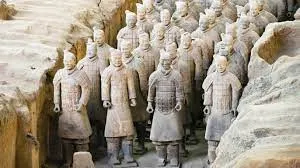
Chinese Buddhism had a lasting impact on early Chinese moral-political thought. It provided a new and different way of looking at the world, one that profoundly affected Chinese thinking. The Chinese religion introduced new concepts of morality, such as compassion, non-violence, and the idea of karma, and these ideas had a major impact on Chinese moral-political thought.
The emphasis is on the importance of altruism, selflessness, and the need to help others. This helped to shape Chinese attitudes towards social responsibility. The concept of karma, the idea that one’s actions have consequences in the afterlife, also helped to shape Chinese attitudes towards justice.
It also taught the importance of moderation. This helped to shape Chinese attitudes towards government and the need for rulers to be wise and just. Buddhism also taught the need for balance between individual and collective goals, and this helped to shape Chinese attitudes towards personal and collective interests.
Buddhism also introduced the concept of emptiness or void, which helped to shape Chinese attitudes towards the nature of the world and existence. The concept of emptiness taught the Chinese to accept things as they are, and to be content with what they have. This helped to shape Chinese attitudes towards materialism and the need to be content with what one has.
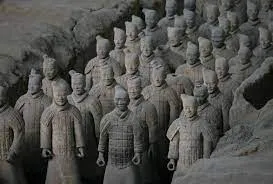
The religion also introduced the idea of enlightenment, or awakening. This helped to shape Chinese attitudes towards the spiritual and the need to seek spiritual truth. This spiritual quest led to a greater appreciation of nature and helped to shape Chinese attitudes towards the environment.
Overall, Buddhism had a profound and lasting impact on early Chinese moral-political thought. It introduced new ideas about morality, justice, moderation, emptiness, and enlightenment, which helped to shape Chinese attitudes towards social responsibility, justice, moderation, materialism, and the environment.
The Role of Rites and Rituals in Early Chinese Moral-Political Philosophy
Rites and rituals are integral components of Early Chinese moral-political philosophy. They are thought to have played a key role in the formation of early Chinese culture and the development of Confucianism. Rites and rituals were seen as a means of maintaining order and harmony in society and of promoting moral values.
The earliest Chinese writings reveal the importance of rites and rituals in Chinese philosophical thought. One of the earliest Chinese works, the Book of Rites, was devoted to describing the proper ritual practices for various occasions. In this text, Confucius wrote that “rites are for the regulation of the people, and music for their delight.” Confucius believed that the proper performance of rites and rituals was essential for the maintenance of a harmonious society.

Confucianism further emphasized the importance of rites and rituals in maintaining social order. Confucius taught that a ruler should lead by example, demonstrating proper conduct by performing the proper rites and rituals. He also argued that the performance of rites and rituals should be accompanied by the proper emotions, such as reverence and respect, in order to be effective.
Rites and rituals also played an important role in early Chinese political thought. In the early Chinese imperial period, the performance of proper rites and rituals was believed to be essential for rulers to maintain the Mandate of Heaven, which was the belief that the gods would grant their approval to a ruler only if he performed the proper rites and rituals. The performance of rites and rituals was thus seen as a way of demonstrating the authority of the ruler and ensuring the continued support of the gods.
They were also used to promote moral behavior in early Chinese society. The performance of proper rites and rituals was seen as a way of demonstrating proper moral behavior and respect for the gods and ancestors. In this way, rites and rituals served as an important part of the moral education of the Chinese people.
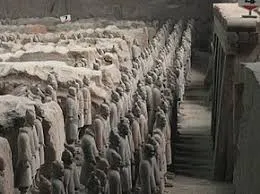
Rites and rituals played an important role in early Chinese moral-political philosophy. They were seen as a way of maintaining social order and harmony, demonstrating the authority of the ruler, and promoting moral behavior. The performance of proper rites and rituals was believed to be essential for the maintenance of a harmonious society and the continued support of the gods.
The Origins of Moral-Political Philosophy in Early China provide valuable insight into the beliefs and values of the Chinese people during the period of its development. It is clear that the Chinese had a strong sense of justice and morality, and that this was an important factor in the development of their political structures and philosophies. The use of Confucianism and other related philosophies helped to shape the Chinese society and its politics, and the influence of this moral-political philosophy is still seen today.